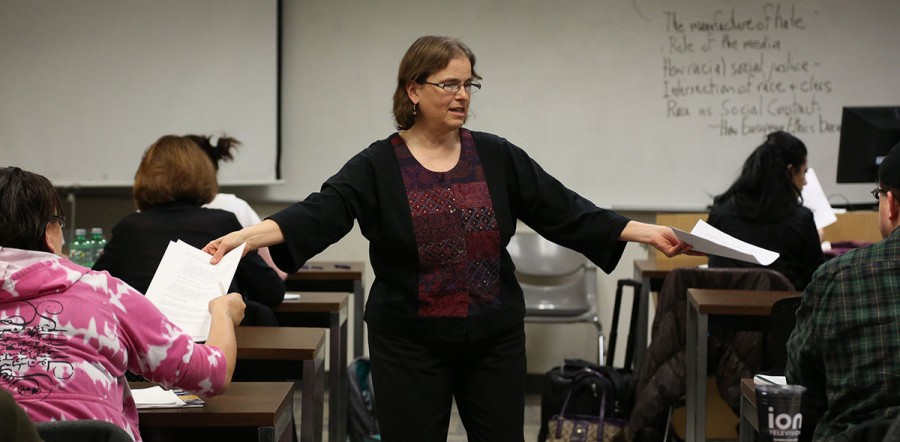With duck hunters all over the country in the last stages of preparation for the 2015 season opening on the 24th, the Fall Classic set to begin on the 27th, the same night that the world’s best athletes set a course for a mid-June date with the Larry O’Brien Trophy, and, undeniably everyone’s favorite pagan celebration of debauchery on the 31st, the last week in October is never a dull one.
But from the 26th-29th, is a campus event that, admittedly, won’t hold your eye like a towering, head above the rim, posterizing tomahawk slam or leave your mouth agape like a cartoon “ahooga” inducing lingerie centered costume on Halloween would, yet it is far more important than anything else happening on or off of campus as it directly relates to the scholastic health of the students.
Campus Equity Week (CEW), will be discussing the adjunctification of campuses nationwide, focusing on how “Faculty Working Conditions are Student Learning Conditions.” At 12:45-2:30, Monday through Thursday, in room H-117, next to the Cafeteria, there will be presentations on, what CEW is and why it’s important, and, among others, the challenges of living as a part-timer, or “Freeway Flyer.”
There will be panel discussions on the effects of corporatization and adjunctification and, in short films on Monday and Thursday, people currently found in the unforgiving vortex of higher academia share their personal accounts and warnings of the inequity and consequences of the mass adjunctification that has transformed college faculties nationwide into, as one Mesa Equity leader put it, “an invisible group,” forced to magician their way through the neoliberal labyrinth that our education system has devolved to.
Leading the Equity charge at Mesa are professors Geoff Johnson and John Hoskins. Faithful to the grassroots, “inside-outside approach to local actions” origin that founder of CEW and long-time adjunct professor and advocate, Joe Berry, had in mind at the first Campus Equity Week in 2000, the two professors are aiming to draw attention to, John Hoskins says, “how the disenfranchisement of faculty,” which is now, according to multiple national studies, approximately 75 percent adjuncts, “directly affects graduation rates and student retention.”
When a student needs help with an assignment and their professor, as a part-timer, not only must use, for the limited office hours they do have, a shared cubicle in a cramped, often hard to find side room occupied sometimes by six other adjuncts but multiple times a day must also fight traffic on the freeways for, if they’re lucky, just a half hour to teach their third class on a new campus that day for less pay and none of the benefits enjoyed by their full-time colleagues, the student rarely receives the help they needed.
Some departments don’t even have full-time professors on staff because adjuncts, plain and simply, are cheaper. An administrator can pay an adjunct far less, restrict their credit hours to keep them below the benefit line, and in turn, look like geniuses when their colleges and universities return financial statements in the black.
Over the last 30 years, the adjunctification issue has grown to be an enormous concern but campus equity is a hollow endeavor if students don’t play a lead role in the fight. If you want to find out more information, come by H117, Monday through Thursday at 12:45-2:30 and join in the conversation. Remember, “Faculty Working Conditions are Student Learning Conditions.”



